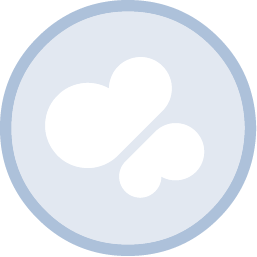August 1 to August 7 every year, Breastfeeding Week is celebrated all over the world. It is celebrated to spread awareness, encourage breastfeeding and deliver health, nutritional, and emotional benefits to both mothers and children. The week commemorates the Innocenti Declaration signed in August 1990 by government policymakers, WHO, UNICEF, and other organizations to protect, promote, and support breastfeeding. “Support breastfeeding for a healthier planet” is the theme of World Breastfeeding Week 2020.
WHO & UNICEF recommend the below:
– Early initiation of breastfeeding within one hour of birth.
– Exclusive breastfeeding for the first six months of life.
– Introduction of nutritionally adequate and safe complementary foods at six months, together with continued breastfeeding up to 2 years of age or beyond.
It has become widely recognized that breastfeeding is the pillar of a child’s healthy development. In addition to containing all the vitamins and nutrients your baby needs, breast milk supports a baby’s immune system and brain development. However, breastfeeding is also a cornerstone for something just as important but something we do not generally think about—a healthy planet. Here’s why:
– Leaving zero ecological footprint, breastmilk is a naturally renewable resource, providing long term environmental advantages.
– Clean energy choice. Breastmilk is not industrially manufactured or transported, generating zero greenhouse gas emissions or other pollutants. In addition, there is no need to heat up breast milk prior to feeding.
– Saves water resources. Breastfeeding has a zero-water footprint because no water is required to prepare breast milk or sanitize feeding bottles (if exclusively feeding at the breast). All that a baby needs for the first 6 months of life is breast milk.
– Zero waste. Breastfeeding is biodegradable and does not produce waste from packaging processes or from plastic feeding bottles. In addition, mothers who exclusively breastfeed have delayed menstruation, thereby reducing the number of feminine hygiene products and their plastic wrappers from ending up in the landfill.
Impact on public health resources
– Breastfeeding protects mothers and babies against many acute and chronic diseases both in the short and the long term.
– Breastfed babies have 15% fewer GP consultations in the first six months than babies fed on formula, and they are five times less likely to be hospitalized with gastroenteritis.
– In addition to reduced waste, this has a positive effect on the environment by reducing transport.
– Breastfeeding also protects against obesity, which is becoming an increasing drain on resources in the world. It helps babies to regulate their own appetite, which will also have a beneficial effect on the use of resources. For instance, in the first 8 months of life, a formula fed baby consumes 30,000 calories more than a breastfed baby.
Risks of not breastfeeding:
– When it comes to infants, not being breastfed is associated with an increased incidence of infectious morbidity, gastroenteritis, and pneumonia, as well as elevated risks of childhood obesity, type 1 and type 2 diabetes, leukemia, and sudden infant death syndrome (SIDS).
– Among premature infants, not receiving breast milk is associated with an increased risk of necrotizing enterocolitis (NEC).
– For mothers, failure to breastfeed is associated with an increased incidence of premenopausal breast cancer, ovarian cancer, retained gestational weight gain, type 2 diabetes, and the metabolic syndrome
Breastfeeding rates can be dramatically improved within a short time frame with collective action. By acting now, we can not only improve the health and survival of women and infants: we can come closer to realizing the aims of the Sustainable Development Goals to make this a happier planet.

